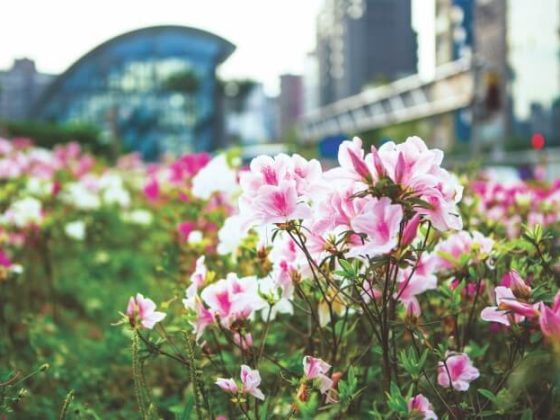WORDS BY Liao Yanming, Zhu Wanci
TRANSLATION BY Joe Henley, JR Wu
PHOTOS BY Lin Guanliang, Songshan Ciyou Temple, Jean Lee Photography, Songshan Cihui Temple, Baoan Temple
Temples are an indispensable part of daily life for most people in Taiwan. They pray to the gods and goddesses at temples dedicated to both Buddhism and Taoism for answers to important issues and seek divination for peace of mind for small issues. In addition to static worship, worship festivals held once a year also highlight followers’ devotion to the rich pantheon of gods, forming an integral part of Taiwanese folk religious culture.
In spring, a variety of folk belief ceremonies are held in Taipei. This year, however, due to the recent outbreak of the coronavirus and some events might be affected. TAIPEI has chosen the best events in Taipei that you should know about. In case you cannot join them this year, you can still learn about local culture first and prepare for the next year. (You might also like: Ten Festivals Worth Planning your Taiwan Holiday around (Part one))
THE BLESSING OF MAZU: A LIVELY CULTURAL LANDSCAPE IN SONGSHAN
As an island country, Taiwan’s ancestors came across the sea and made a living from its bounty, placing the sea goddess Mazu (媽祖) in an important position in the hearts of the people. As a center of Mazu worship in Taipei, a series of grand ceremonies are held at Songshan Ciyou Temple (松山慈祐宮) in March of the lunar calendar, the birth month of Mazu. (Read also: The Mazu Pilgrimage Experience)
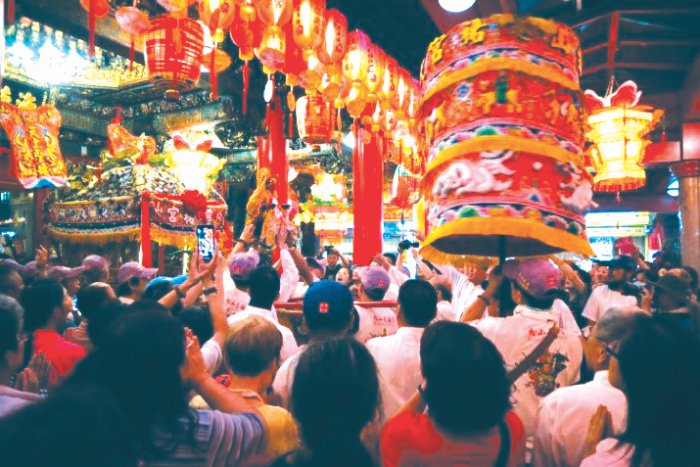
On the birthday of Mazu, March 23 of the lunar calendar, it is a custom to hold the ancient ritual of the “Three Offerings Ceremony” (三獻大典) at the main hall of Ciyou Temple, in which large praying parties with flags and drums will march through Songshan District along eastern, southern, and northern routes. Tables filled with incense burners, flowers, and fruits will be prepared by stores and residents along the way. Devout followers will follow the goddess’ palanquin and compete in crawling under the palanquin to receive her blessings. There is also a Taiwanese opera performance at the front square of the temple, where gongs and drums will be played, showing local traditional religious and folk customs, which is worth experiencing with your family.
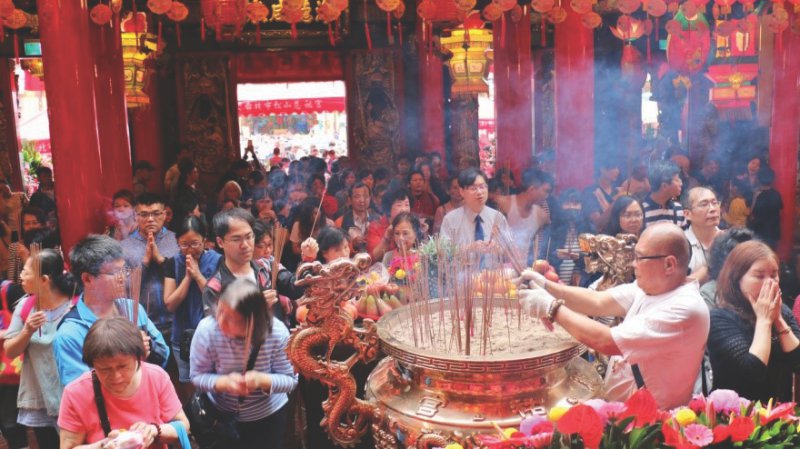
Ciyou Temple, as the center of faith in Xikou (錫口, now known as Songshan District), also acts as a hub to bring the local community together. Every year, it is routine for Ciyou Temple collaborates with Taipei City government to hold the Xi Kou Festival (錫口文化節). The festival is the celebration of Mazu’s birthday, through a 13-village pilgrimage and traditional yizhen (藝陣), a folk art performance that usually takes place in religious parades, making this event more appealing and culturally diverse. In addition to religious and cultural performances, local attractions like the Rainbow Bridge and Raohe Street Night Market (饒河街夜市) are involved in this exciting event as well, making the Xi Kou Festival a spring ceremony not to be missed. (You might also like: Seven Taiwan Night Markets Everyone Needs to Visit)
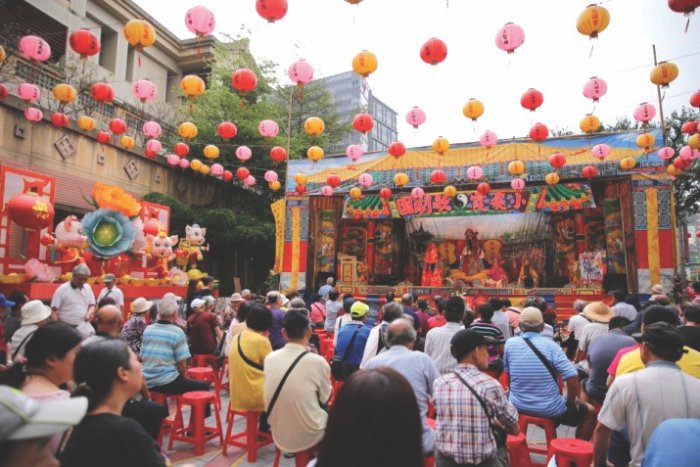
TAKE UP THE TORCH OF RITUAL HERITAGE: BAOSHENG CULTURAL FESTIVAL
Because medical technology in Taiwan was not as advanced in the past, when disasters such as plagues struck, locals would often pray to the gods for spiritual consolation. Therefore, belief in deities such as Baosheng Emperor (保生大帝), the god of medicine, and Shennong Emperor (神農大帝), the god of herbal medicine, were popular. The celebration of Baosheng Emperor’s birthday is usually held on March 15 of the lunar calendar in Dalongdong (大龍峒). Since 1994, Baoan Temple (大龍峒保安宮) has added art performances and cultural events to traditional temple ceremonies, extending the original events to the birthday of Shennong Emperor, creating the Baosheng Cultural Festival that lasts more than two months. This year, the festival will kick off on March 26 and continue until June 28. (You might also like: Vintage Taipei in Dadaocheng)
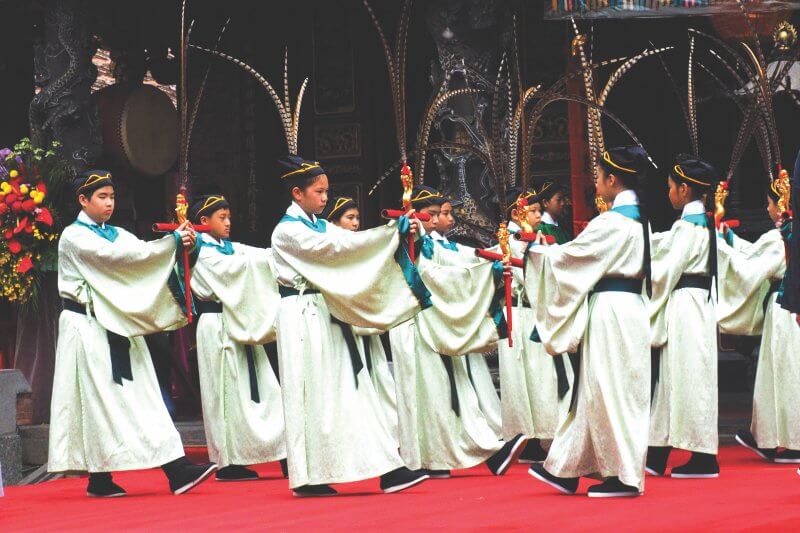
The Baosheng Cultural Festival is an annual event in Dalongdong. Although the famous Fire Lion fireworks display (放火獅), fire-walking rituals (過火) and jiaxingxi (家姓戲, literally “Family Surnames Folk Opera”) will not be held as usual this year, the birthday celebration on March 15 (April 7 of Western calendar) is still going ahead and will be the highlight of festival. Furthermore, Baoan Temple received the Asia-Pacific Heritage Award for Cultural Heritage Conservation from UNESCO in 2003 for its excellent preservation of architectural and decorative crafts. Taipei Confucius Temple (台北市孔廟) is located in the vicinity, adding a strong human and artistic atmosphere to the Baosheng Cultural Festival in addition to its religious significance. (Read more: Teacher’s Day in Taiwan: A Modern Take on a Confucian Tradition)
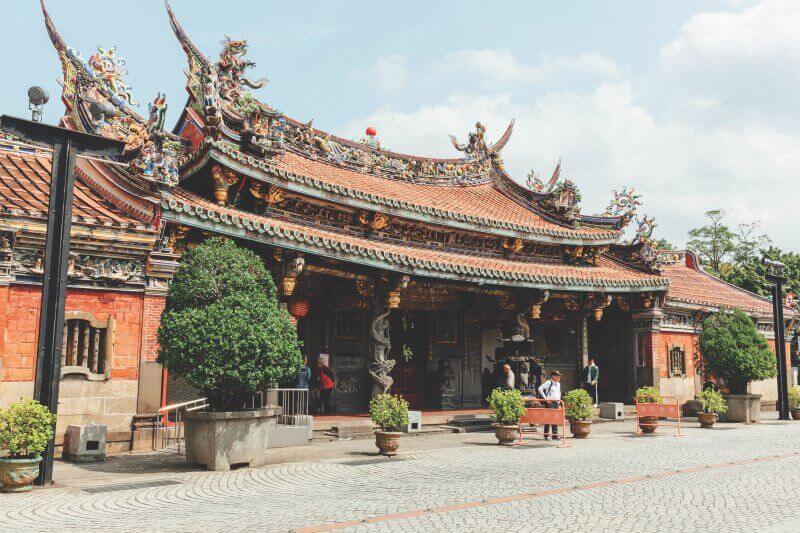
SHOWING AND ENCOURAGING KINDNESS: TAIPEI MUNIANG CULTURAL FESTIVAL
Located in Taipei’s Xinyi District, Songshan Cihui Temple (松山慈惠堂) mainly worships Yaochi Jinmu (瑤池金母), who watches over family prosperity, marriage and childbirth, and is also known as Queen Mother of the West (西王母) or Muniang (母娘, Mother Empress). Songshan Cihui Temple occupies a crucial role in Muniang worship in Northern Taiwan, and always endeavors to manifest motherly love, based on the Muniang Spirit of kindness and gratitude, through education, public welfare, social education, and more.
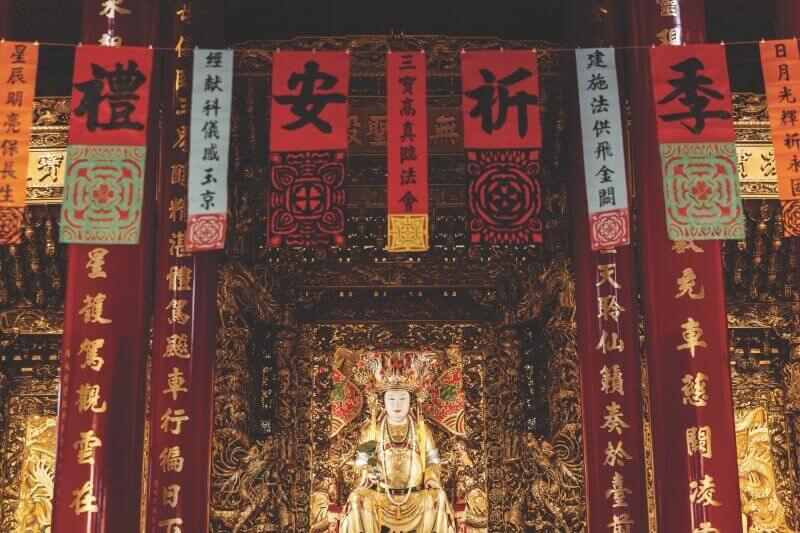
Because the principal deity of Songshan Cihui Temple is the Queen Mother of the West, most followers are women. You will find that everything in the temple is arranged in an orderly and disciplined manner. All followers are dressed uniformly in blue shirts, giving a sense of stability and revealing a refined and elegant atmosphere. Accordingly, the temple was chosen as one of the ‘‘Top 100 Religious Scenes in Taiwan’’ by Taiwan’s Ministry of the Interior in 2013.
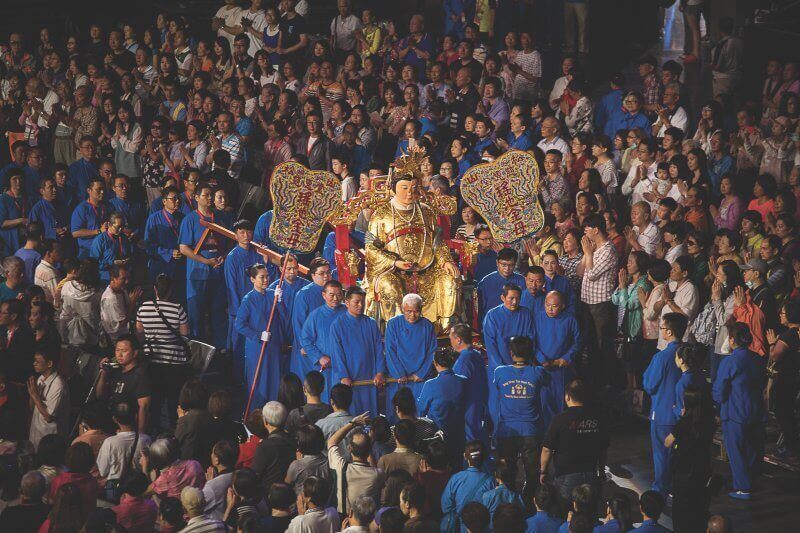
Songshan Cihui Temple has been holding the Taipei Muniang Cultural Festival (台北母娘文化季) every year since 2008, organizing religious ceremonies, parades, and all kinds of public welfare, cultural, education and charitable activities during the first half of the year. Though the parade has been cancelled this year due to coronavirus concerns, visitors are always welcome to visit the temple to pray to Queen Mother of the West, in turn wishing your family a health and happy year. (Read also: A Snapshot of Daily Life in Taipei During the Coronavirus Outbreak)
This article is reproduced under the permission of TAIPEI. Original content can be found at the website of Taipei Travel Net (www.travel.taipei/en).



